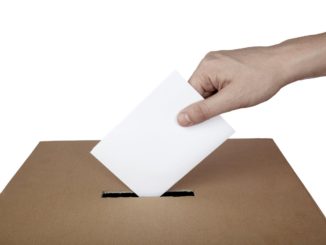
[dropcap]Psychiatric[/dropcap] nurses are experiencing a recruitment and retention crisis with a 40 per cent increase in vacancies since last November.
Vacancies have increased from 500 to 700 since 2017. The Psychiatric Nurses Association predicts that due to high age profiles, 1,752 psychiatric nurses are expected to retire immediately or within the next five years. This is 34.2 per cent of the workforce.
“The conclusion of the Pay Commission that there is no issue with nurse recruitment is completely at odds with the evidence and experience of psychiatric nurses across the mental health services,” said PNA General Secretary, Peter Hughes.
An Oireachtas Committee report on the Future of Mental Healthcare has recommended that special payments for psychiatric nurses to incentivise recruitment and retention.
“One of the main reasons why there is a lack of recruitment probably because there is still a massive stigma around mental health. People are scared to go down the psychiatric nursing route because of the common stereotypes surrounding mental health such as patients are dangerous or they will get beat up not because of the poor pay,” said a DCU psychiatric nursing student who wanted to remain anonymous.
The report also calls for a doubling of acute beds from 22 to 50 over the next three years. Psychiatric nursing beds have decreased exponentially over the past 34 years. There were 12,484 beds in 1984, which fell to 4,173 beds in 2004. In 2016, there was 1,002 beds available, a total decrease of 91 per cent. Children have been committed to adult beds as a result.
“The recommendations contained in the report in relation to additional payments such as ‘top-ups’ of allowances would have to be considered in the context of Public Service Pay Policy and the recommendations of the Public Service Pay Commission,” said the Department of Health’s Press Office when contacted.
One in seven teenagers experience significant symptoms of depression, according to a report conducted by the National Suicide Research Foundation (NSRF), with data drawn from the Saving and Empowering Young Lives in Europe (SEYLE) study.
The report found that 7 per cent of teenagers had serious suicidal thoughts while a further 4 per cent had attempted suicide. One in four teenagers had symptoms of anxiety.
Minister for Mental Health and Elderly people, Jim Daly, has cited online psychiatric consultations as a potential solution to the vacancy crisis. This suggestion comes in the wake of the Better Help scandal, where an online counselling service was accused of malpractice.
“Using and supporting highly trained professional psychiatric nurses in the role of Advanced Nurse Practitioners and day hospitals/home based treatment offers realistic and workable options for mental health services rather than relying on the fad of online video assessments and diagnosis to meet the current crisis,” said Hughes.
The committee report and the PNA have proposed that preliminary screenings by Advanced Nurse Practitioners would reduce waiting lists and allow greater access to Child and Adolescent Mental Health Services. Currently the CAMHS heavily relies on overtime and agency nurses.
David Kelly
Image Credit: Irish Mirror



